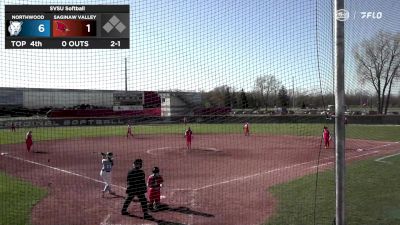Gary Haning: ideas on early committing
Gary Haning: ideas on early committing

 If you know anything about club softball, you know that Gary Haning is one of the most successful and respected club coaches in the sport’s history. Haning has led the OC Batbusters for three decades and won multiple National Championships at the 18U Gold level while producing dozens of players who went on to college, Olympic and pro success including Jennie Finch and Laura Berg.
If you know anything about club softball, you know that Gary Haning is one of the most successful and respected club coaches in the sport’s history. Haning has led the OC Batbusters for three decades and won multiple National Championships at the 18U Gold level while producing dozens of players who went on to college, Olympic and pro success including Jennie Finch and Laura Berg.
In this opinion piece, the coach lays out his thoughts on committing early and proposes two ways to lessen the pressure on athletes who do so…
*****
Picture the following:
… a plastic bat and a little Wiffle ball.
… a darling little girl in her pink sundress careening around some makeshift bases in the park, her little feet barely touching the grass as she ran (I do think she missed the KFC box that was first base but I wasn’t telling).
As she completes the circuit she runs into her father’s arms squealing, “Daddy I did a good one!” Such a joy to watch—so much fun from something so simple.
Trying to get rid of some of the lard that I carry around with me, I have been walking in the park most days for a couple weeks. It was there that I saw this family of three little girls playing wiffle ball with Mom and Dad almost every day.
Dad pitches, one kid hits, the other two shag the ball. In time they all rotate through the hitting “station.” Mom pretty much just watches, but cheers and screams and obviously enjoys it all.
Watching these little girls having such a great time brought to my mind the issues I have with the world of softball and recruiting as it now exists.
Everyone agrees that earning a free or partially paid college education is a good thing. I am as guilty as anyone in promoting softball as a means to attend college, but the cart is getting farther and farther ahead of the horse and I just don’t know how to slow it down.
Thirteen and fourteen-year-old girls should be playing the game for the same reason as the family in the park: play because it is fun, play because you love the game.
A high school freshman should not worry because the coach from BIG TIME U is watching and may offer her a scholarship based on that day’s performance. Yes, this is very naïve and stupid—of course they know, of course it concerns them.
The question is, how do we as coaches, parents and others who touch these young lives make a difference to them?
We know the college coaches are not going to stop recruiting young players. As repulsive as this may sound at first, maybe the best solution is for softball players and college coaches to go the way of football and basketball.

“Sure I will ‘commit” to your school, but I am taking my other four official visits and I may change my mind.”
This has always been frowned upon in softball, but it sure eases the pressure of making a set-in-stone choice at 13 years old.
In my mind, this is the way recruiting will evolve: in five years we will follow softball recruiting sites and they will say exactly what football sites say now—“Jane Doe” is a soft commit to “College A” and is taking visits to “Colleges B, C and D.”
In softball, players and their families grow up with the expectation of a commitment to a club team. Many girls play for the same organization for many years and will not leave that group even when it is obvious to others that staying is to the girl’s detriment.
This mindset carries over to recruiting, for good or bad.
College coaches for the most part follow the same course. You may hear some rumors—I have had a couple coaches tell me on the sly that if so and so is not happy, this is an option, but it is rare.
I am not ready to advocate the “soft” commitment on either side of the issue, but if you look at it, there are at least two advantages to the players.
One is that while they have the genuine intention of going to the school that they gave the commitment, they are not a pariah to the softball world if they change their mind. There will, of course, still be pressure, but in my opinion the pressure would be reduced.
The second effect may not be looked at as an advantage to the players themselves, but as a coach I am positive a little less entitlement once a player is committed would not be a bad thing.
If little Susie knows her future coach may pull the rug, some of the lack of effort we see from many (not all, but from way too many committed players) would change. Of course in a perfect world this would not matter but I have seen “senioritis” become “sophomoreitis” from some very talented players.
Maybe it is time that WE as coaches and softball families say NO.
Maybe if we all can agree that no one commits before at least her junior year, the coaches will back off and give these kids some room to be kids. Is this a pipe dream? Probably, but who knows until someone tries.
This all is one man’s opinion and it holds no more weight than any other.
I would love to see some changes made and I hope I never have to see the darling 13-year-old little girl from park someday have her father yelling at her because she made an error with THAT important coach watching.
—Gary Haning
Related Content
 Replay: Northwood vs Saginaw Valley - DH | Apr 25 @ 5 PM
Replay: Northwood vs Saginaw Valley - DH | Apr 25 @ 5 PMApr 25, 2024
 Replay: Northwood vs Saginaw Valley - DH | Apr 25 @ 3 PM
Replay: Northwood vs Saginaw Valley - DH | Apr 25 @ 3 PMApr 25, 2024
 Replay: Penn St.-Altoona vs Juniata - DH | Apr 25 @ 3 PM
Replay: Penn St.-Altoona vs Juniata - DH | Apr 25 @ 3 PMApr 25, 2024
 How to Watch: 2024 Hood College vs Elizabethtown | Softball
How to Watch: 2024 Hood College vs Elizabethtown | SoftballApr 25, 2024
 How to Watch: 2024 Landmark Softball Championship - Play in Game | Softball
How to Watch: 2024 Landmark Softball Championship - Play in Game | SoftballApr 25, 2024
 How to Watch: 2024 Northwood University vs Saginaw Valley St. - Doubleheader | Softball
How to Watch: 2024 Northwood University vs Saginaw Valley St. - Doubleheader | SoftballApr 25, 2024
 Replay: Queens University vs Campbell - DH - 2024 Queens (NC) vs Campbell | Apr 24 @ 7 PM
Replay: Queens University vs Campbell - DH - 2024 Queens (NC) vs Campbell | Apr 24 @ 7 PMApr 25, 2024
 Replay: Davenport vs Wayne State (MI) - DH | Apr 24 @ 3 PM
Replay: Davenport vs Wayne State (MI) - DH | Apr 24 @ 3 PMApr 25, 2024
 Replay: Georgia Southern vs Charleston | Apr 24 @ 5 PM
Replay: Georgia Southern vs Charleston | Apr 24 @ 5 PMApr 24, 2024